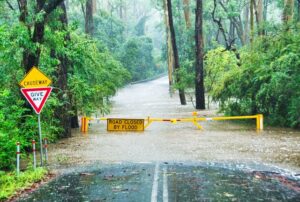How To Safely Re-Enter Your Home After Flood
Has your home been damaged in a flood caused by heavy rain, a tornado, or a storm? There are chances it is heavily contaminated with sewage and mold. It can end up causing severe health problems for you and your family.
tornado, or a storm? There are chances it is heavily contaminated with sewage and mold. It can end up causing severe health problems for you and your family.
When returning to your property, you must take all the precautions necessary to remain safe. In case of floods, contact 911 Restoration for mold removal services.
These five steps will keep you safe.
1. Always Re-enter Your House In The Daylight
Make sure that it should be in the daytime whenever you go back to your home after the flood. It will help you see the damage more clearly, and you won’t have to squint your eyes in the torchlight.
When you go back to check on your house, make sure to do the following:
- Switch off the main power of the home if you still have water standing in some areas. If you have to go through the water to reach the main switch of the house, call an electrician to do so. It is not recommended to switch off the main power yourself or use any electrical appliance while standing in the water. It is a smart decision to have an electrician check the electrical system before switching it on again.
- If you can smell even the slightest gas odor in the house, there might be chances of a gas leak over time. You must leave the house immediately. Call up the fire department or the gas company and make sure you don’t switch on any lights as that might cause a spark in the house. Enter the house when you’re told to do so.
- If you’re entering the house after a long period, make sure the first thing you do is open all the windows. It’ll allow the locked-up house air to escape. And similarly, if your house has been flooded and closed for a while – know that it has mold, and there are high chances that it may be contaminated with the sewage water.
2. Throw Away All Food Items
Never keep food in the house after a flood. The contaminated water can cause germs to spread in the house, and due to a power outage, all the food in the fridge is bound to have gone bad. This food should be thrown out as it can make you and your family sick.
You should, under no circumstance, consume food or any types of drinks that have been in the fridge for a long time. Do not go on the color, odor, or texture of the things. Even if the items smell okay, it is recommended to throw them away and not take any risks.
3. Make Sure Drinking Water Is Clean & Safe To Consume
It is no hidden fact that floodwater can contaminate the entire area’s drinking water. Your home is no exception – impurities from the flood water have a higher chance of getting into the ground and eventually making their way into the water you drink.
- Don’t start drinking tap water the minute you re-enter your home. Follow the instructions of how safe or unsafe it is to consume water.
- If you have a private well in the house – make sure to get your water tested before you start using it for consumption purposes.
- If you have doubts about the water being safe, don’t use it for showering, brushing your teeth, washing the dishes, or any sort of consumption in the kitchen or around the house. If you wish to use the water, make sure you boil it first, or the best would be to get safe water from the nearest available source.
4. Be Careful When Using Electrical Equipment
The biggest risk when a flood has made the house a high-risk area is to use your electrical equipment. You should, under no circumstance, be using your electrical equipment if they have not dried out completely.
- You must call in an electrician to come and check if everything is dried and safe to use. It is not recommended to connect electrical appliances into the sockets without an electrician checking out the entire house.
- If you have a generator in the house, it is imperative to get it checked out at first. There are higher chances of the generator having water in it due to being flooded or sparks if connected into the socket without being checked by an experienced engineer.
- You might have to switch off everything for a few days after re-entering your home to ensure that all things are safe to use in the house.
5. A Thorough Cleanup
It is necessary to clean out the entire house to prevent mold.
- The minute it is safe for you to switch on the min power of the house, use a wet-dry vacuum, a sump pump, or an electric-powered water transfer pump to suck out all the water there is in the house. Make sure you’re in rubber boots at all times to avoid being electrocuted.
- Open all doors and windows of the house to release any fumes, odor, or smell and speed up the drying out process.
- The use of fans can also help to dry out the house at a much higher speed.
- Make sure water from outside doesn’t enter your house again as there are chances of this happening – especially in the basements.
- Clean the basements thoroughly – use proper water extraction systems to avoid water from staying in for too long.
These five steps will help you and your loved ones to remain safe throughout the flood seasons. For prompt and effective water restoration and mold removal services, contact 911 Restoration.


